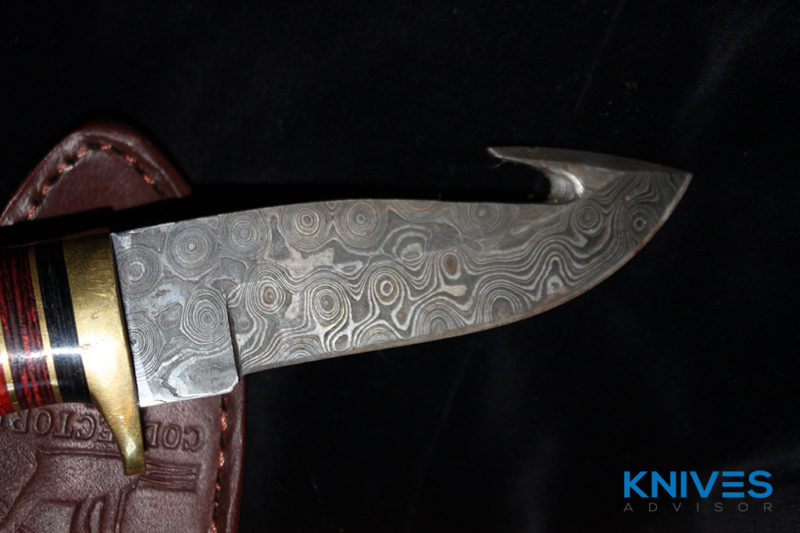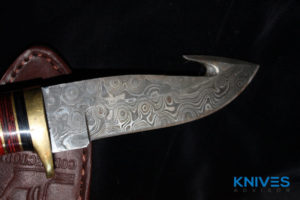The materials from which a knife is made can make a difference to the price, the quality, its durability, its sharpness, and its edge retention. It can also impact on which group of consumers the knife will appeal. Usually, the blades of knives are made from some form of steel and one type of steel that is commonly used is Damascus steel.
But what is Damascus steel? Here is an overview of what this type of steel is, its history, and which brands use this type of steel. We also discuss where you can buy Damascus steel if you want to make your own knife.
The History of Damascus Steel
Damascus steel is a type of patterned steel that is created by layering different grades of steel. It was originally used to make sword blades and was then also used to create the blades of knives. It is named after Damascus, which is the capital city of Syria.
However, it is not known whether this is because Damascus steel was first created there or if it is because the pattern is like that of traditional Damask fabrics.
The exact date when this type of steel was first used is unknown; nor is it known who first created this type of steel or the method used. However, there is evidence to suggest that early Damascus steel was made in the Near East and the Middle East from ingots of wootz steel that were imported from India and Sri Lanka between the 3rd and 17th centuries.
Modern Damascus Steel
The creation of Damascus steel declined and was no longer made after 1750 because the work of metal smiths and the techniques they used moved forward. Modern-day steel of this type is not the same as traditional Damascus steel and that is because nobody knows the exact process that was used to originally create this type of steel.
Many people have tried to replicate the original Damascus steel using various raw materials and methods and these attempts have achieved varied results. In the modern day, the term Damascus steel refers to a steel that has layers of hard steel and soft steel that create the famous wavy pattern for which Damascus steel knives are known.
What Makes Damascus Steel Different to Other Brands?
The most notable feature of Damascus steel that makes it stand out from other types of steel is the pattern. The wavy design in different shades of gray makes Damascus steel instantly recognizable. Many people buy knives with Damascus steel blades purely for the aesthetic benefits.
Another factor of this steel that differentiates it is that it is more shock absorbent than other types of steel. This is because of the layers of softer steel between the layers of harder steel.
Which Knife Brands Use Damascus Steel?
There are many brands that manufacture knives with Damascus steel blades and this applies to both kitchen knives and knives meant as tools. This material is more popular in knives manufactured in Asia than in Western knives as the latter favor high-carbon stainless steel knives.
However, there are examples of knife brands from across the globe that manufacture knives made using this type of steel. Some of these include:
- Arson’s Knife
- Cold Steel
- Dalstrong
- CRKT
- Henckels
- Kershaw
- Kizlyar
- Shun
- SOG
- Spyderco
- Victorinox
Where Can You Buy Damascus Steel?
Some people prefer to make their own knives rather than to buy them from a retailer. They may do this because they enjoy the craftsmanship of knife making or because they want a unique knife that suits their personal tastes.
If you want to make your own knife, it is possible to buy Damascus steel online. There are retailers on sites such as Amazon and eBay that sell Damascus steel billets, which are bars of Damascus steel from which you can cut your own knives. These vary significantly as they use different materials in different ratios to form various patterns.
Another option is to buy blank Damascus steel knife blades that you can then shape and sharpen to meet your needs.
Bottom Line
Damascus steel is one of the most traditional materials used for knife making. Although the modern methods of creating this steel vary from the original methods, it remains a popular choice. This is predominantly for its aesthetics rather than for practical benefits.
Many knife brands continue to produce knives using this type of steel and it is possible for people to make their own knives using a Damascus steel billet if they have the skills to do so.

